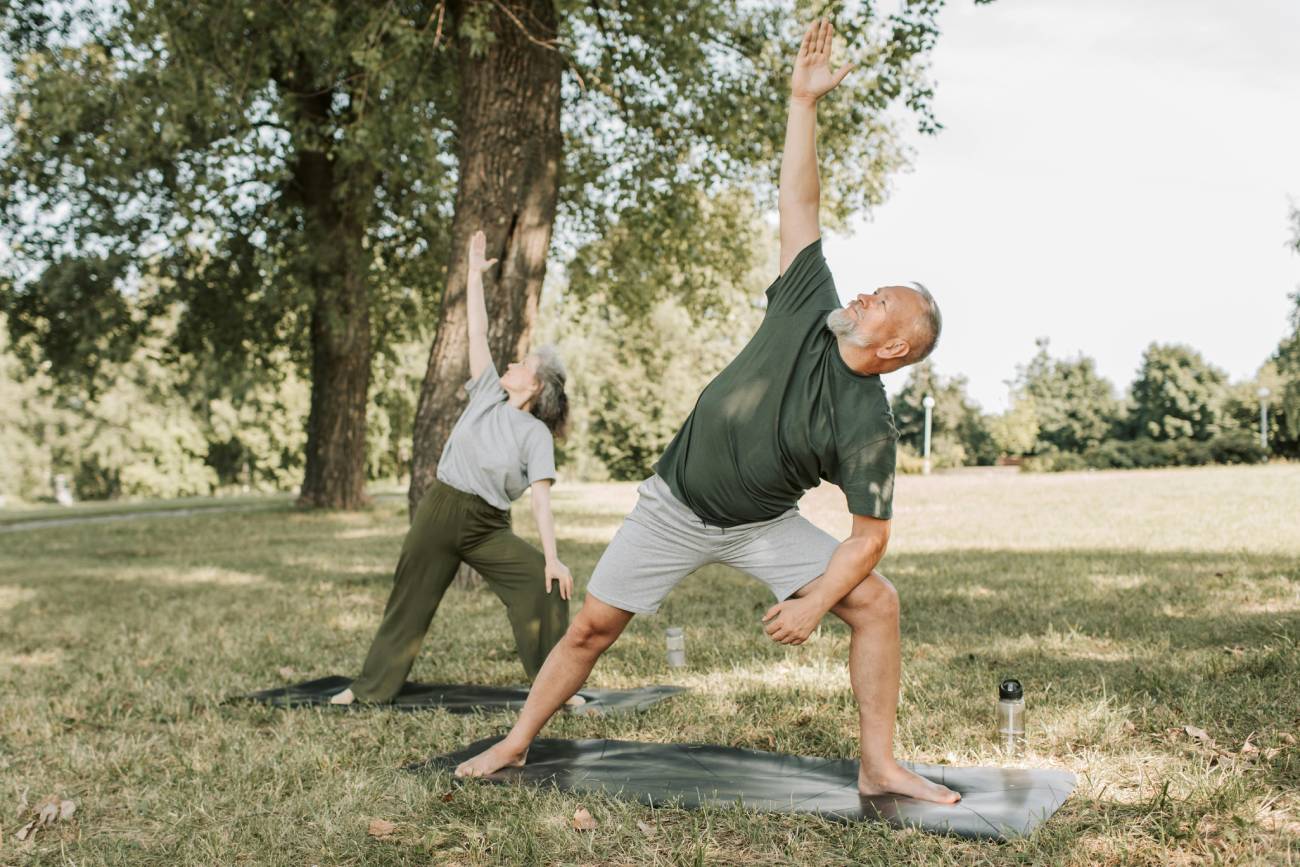
Guest article provided by: 3dactive.com

Guest article provided by: 3dactive.com

Guest article provided by: 3dactive.com

As we traverse through our golden years, maintaining robust health becomes a non-negotiable priority. For seniors, adopting a wholesome lifestyle can dramatically enhance their quality of life and overall well-being. Here’s an insightful guide offering tips for seniors to cultivate healthier habits.
Ensuring you’re adequately hydrated is vital for seniors, as the sensation of thirst often diminishes with age. Strive to drink at least eight glasses of water each day. Water not only regulates body temperature and lubricates joints but also facilitates digestion. To make hydration more enjoyable, add slices of fruits like lemon or cucumber to your water. Staying hydrated can also improve skin health, making you feel and look good! Moreover, proper hydration helps maintain kidney function and can prevent urinary tract infections, common in seniors.
Incorporating a diet filled with fruits, vegetables, lean proteins, and whole grains can markedly improve seniors’ health. These nutrient-dense foods boost the immune system, promote heart health, and assist in maintaining a healthy weight. It’s equally important to avoid processed foods laden with high sodium, sugars, and unhealthy fats. Remember, mindful eating is just as important as what you’re consuming. Plus, a balanced diet can help manage chronic conditions, such as diabetes and hypertension, which are prevalent among seniors.
If you’re a smoker, quitting is your best health decision. Smoking escalates the risk of heart disease, stroke, and cancer. Regardless of how long you’ve been a smoker, it’s never too late to quit. The health benefits kick in immediately after you stop, dramatically improving your quality of life. Furthermore, quitting smoking can also improve your sense of taste and smell, enhancing your enjoyment of food.
Quality sleep is pivotal for overall health, especially as we advance in age. Adults should aim for seven to nine hours of sleep per night. Cultivate a comfortable sleeping environment, adhere to a regular sleep schedule, and avoid caffeine and heavy meals before bedtime. Good sleep can improve memory and cognitive function, making a sharper mind. Plus, adequate sleep can also bolster your immune system, making you less susceptible to illnesses.
Preserving social connections is essential for both the mental and physical health of seniors. Regular social interaction can ward off feelings of loneliness and depression. Participate in clubs, volunteer, or enjoy quality time with family and friends. A quick phone call or video chat can brighten your day and bolster your mental health. Beyond that, staying socially active can keep you informed about the world, stimulating intellectual growth and fostering a sense of belonging.
Nurturing health in your golden years is a multi-faceted endeavor. It requires prioritizing hydration, choosing a nutrient-rich diet, kicking harmful habits like smoking, investing in quality sleep, sparking motivation through engaging in activities, and fostering connections. Each of these elements contributes to a healthier, happier, and more fulfilling life. Embracing these habits can dramatically enhance your quality of life and overall well-being, ensuring your golden years are indeed golden. Remember, it’s never too late to make positive changes in your life. Start today, and relish the health benefits that these changes bring, allowing you to live your best life in your senior years.
Image By: pexels.com

While we’ve all become familiar with Skype meetings, Facetime chats, and Zoom webinars, many people are finding the latest tech connectivity options allow for even wider personal use — for example, learning a new skill or hobby online with friends, or seeking inspiration from hopeful music. Ready to expand your horizons? Then you’re in luck! This article offers some great ideas to help you get started.
Chances are, you have friends and family members spread across the country, or even the globe, who you don’t see in person very often. Getting together in a virtual setting for a shared self-development activity can create new ways of bonding, learning interesting skill sets, and even taking a collective focus on a particular hobby.
Have you always wanted to play the guitar? Do you wish you stuck with piano lessons when you were 12? Maybe you still have a saxophone from the high school marching band in the closet collecting dust. Perhaps you attended a symphony performance and it inspired you to learn the violin. It’s never too late to acquire music skills, and online instruction provides a number of tools old school music lessons didn’t – like the ability to pull up music on a tablet or record your lessons and revisit them to look for improvements. You might even be able to find a gently used instrument online
Whether you’re interested in growing hot house orchids or want to become a backyard farmer as a way to live healthily and sustainably, chances are you can find an online program to help you do it. There are plenty of sources to help you learn about what grows best in your region, and what kinds of soil, nutrients and water, and sunlight various plants need. You can also become familiar with what is poisonous and what has medicinal properties, and even get insight into how you can safely process and preserve the food you’ve grown. Even if you over-produce, you can share with neighbors and some types of food banks.
Ever wanted to learn how to prepare a fully vegan meal? Maybe you have a favorite cuisine from a favorite country you’d like to learn to make? According to She Knows, whether you’re looking to learn exotic cooking styles or want tips on healthy meal prep, a virtual group cooking class can be both fun and educational. All you need to do is set up your laptop or tablet in your kitchen and follow along. Programs are available for beginners all the way through master chefs. You can even lift a glass of wine and toast your friends and instructor!
Online exercise programs are a new twist on live fitness classes and old-school workout videos. You can participate in everything from spin classes and kickboxing to yoga and meditation. The great thing about working out with friends in a virtual environment is the camaraderie, the group support, and the standing time commitment to improving your health through increased physical activity. You’ll also be in the virtual “front row” of every class, which can be helpful when you’re trying to learn new techniques or mimic movements or poses.
As the pandemic-era international travel restrictions ease, you may be ready to finally take that overseas trip you’ve been planning for. So why not take this time to learn a new language? Not only will this type of program stimulate your brain in new ways, but it will also allow you to fully immerse yourself in local culture when you travel abroad. You might even consider a program that teaches you a bit about the people, the history, and the traditions behind the language. Doing this with friends can be great fun – especially if you start planning a group trip where you can use your newfound skills.
Learning new skills is not just fun, it can help you feel a sense of achievement and even start a profitable business. It also provides a much-needed social outlet, especially if you live in a remote area, have been working from home, or are unable to get out much. Rally your best group of friends to participate with you as a bonding experience, or meet new friends by joining an existing group solo!
Image By: unsplash.com

Downsizing can be challenging, especially for seniors who have accumulated many possessions over the years. Despite this, downsizing can offer many benefits, including improving quality of life, reducing stress, and increasing financial security. Below, this article shares some helpful tips and resources to assist you through this process.
The first step in downsizing is to prepare a plan. Start with a smaller space, like a storage room, and begin by sorting items into three categories: keep, sell, and discard. As you grow more comfortable with this process, start moving on to larger spaces. It’s essential to make a plan that suits your personal needs and timeline so that you can avoid feeling overwhelmed.
Are you a business owner? Consider selling it if you’re ready to retire or moving long distance. Before selling, make sure to get a professional business valuation so you have an objective perspective on the business’s value before it’s sold. The valuation should include all your business assets, including all real estate and inventory. Also get a complete picture of all the debt associated with the business.
The second step is to start as soon as possible. Avoid waiting until a crisis like an illness or a sudden move forces you to downsize. Starting sooner will give you more time to decide on what items to keep and how to let go of the ones you don’t want anymore. Remember that downsizing is a gradual process, notes BoomersHub, so don’t try to tackle everything at once.
StoneGable points out that the third step is to decide on which items to keep, sell, and discard. Make a list of the things you cannot live without and those that are valuable and hold sentimental value. Try to limit the number of items you keep. For the items you don’t want to keep, consider hosting a garage sale, donating them to charity, or giving them to friends and family.
The fourth tip is to digitize your important documents into PDFs. Instead of investing in more storage devices or shuffling through papers to make room, you may consider this option: digitizing your important documents into PDFs. Not only does this method help declutter your space, but it also helps organize your documents in an easy-to-find digital format.
The fifth tip is to seek the help of professionals and loved ones. Downsizing can be a challenging and emotional process, and you’re not alone in dealing with it. Reach out to family members or friends who can support you during the experience. Additionally, consider hiring a downsizing consultant or professional organizer to help you through the transition.
The sixth tip is to search for a senior-friendly home. Consider a home that is suited to your specific needs, such as a house with a single story. Look for small and low-maintenance homes that are easy to manage. If you’re not ready to move to a new home, consider downsizing to an apartment. Many retirement communities offer rentable apartments that offer little maintenance and offer activities and community resources.
When it comes to packing for your move, your clothes, of course, are a big consideration. When packing your clothes, iron them so they’re wrinkle free and don’t take up much room. If you don’t have an ironing board, use an ironing blanket on top of a washer, dryer, kitchen counter, or table.
The seventh tip is to plan what to do with your old home. After you’ve downsized, you may be faced with the decision of what to do with your old home. You may, in fact, decide to stay in your home. If you’re looking to sell your home, consider partnering with an experienced realtor who can navigate the process and ensure you get the best price for your property. They can assist you in navigating the process and securing the best deal. A real estate agent can ensure a smooth transaction while minimizing potential problems and risks.
Downsizing can be a challenging experience, but it doesn’t have to be. By following a plan, starting as soon as possible, selling your business, and utilizing innovative solutions like digitization and consulting professionals, the process can be more comfortable and even exciting. Whether you’re looking to improve your quality of life or reduce stress and possessions, downsizing can offer a plethora of benefits to seniors. Remember that the key to successful downsizing is making a plan, seeking support from loved ones and professionals, and keeping an open mind throughout the experience.
Image By: pexels.com

As an empty-nester, you may find yourself with more free time than ever before. With your children grown up and out of the house, you have the opportunity to embrace this new chapter in your life and focus on your own personal goals and interests. This article shares some tips on how to optimize your time as an empty nester.
Now that you no longer have to worry about school schedules or extracurricular activities, take advantage of the extra time to travel. Whether it’s a weekend getaway with friends or a romantic trip with your partner, traveling can be an excellent way to relax and recharge. Explore new destinations, try new foods, and create lasting memories.
With your children out of the house, it’s the perfect time to set new personal goals for yourself. Perhaps you’ve always wanted to learn a new language, start a business, or write a book. Now is the time to pursue these dreams. Set achievable goals and break them down into smaller steps. Celebrate your successes along the way and don’t be afraid to ask for help when needed.
Learning a new skill can be a great way to keep your mind active and engaged. Consider trying something creative, such as painting, writing, or photography. There are plenty of online classes and tutorials available, and many community centers and art schools offer courses for beginners.
If you see a way to monetize your new skill, consider starting a business. Many startups choose to operate as an LLC, as forming under this structure comes with several benefits including limited liability, less paperwork, flexibility, and certain tax advantages. It’s possible to DIY, hire a lawyer, or have the best of both worlds by outsourcing the formation task to an affordable formation service to file all the paperwork accurately and on time.
As an empty nester, it’s important to focus on your financial planning. Take the time to review your retirement savings and investments and make any necessary adjustments. Consider meeting with a financial advisor to help you create a plan for your future.
With your children out of the house, you may find that you have more time to focus on building new connections with others. Join a social group, volunteer in your community, or attend local events. Building new relationships can help you stay connected and feel fulfilled in this new chapter of your life.
Gardening can be a relaxing and enjoyable hobby, and it’s a great way to get outside and connect with nature. Whether you have a small balcony or a large backyard, Almanac.com suggests starting a garden and watching it grow. You’ll enjoy the fresh air and exercise, and the fruits of your labor will be a source of pride and accomplishment.
Now that you don’t have to worry about picky eaters or busy schedules, take the time to try making new recipes. Cook with ingredients you’ve never tried before, experiment with different cooking techniques as recommended by Lacademie, and invite friends over for a dinner party. Cooking can be a fun and creative way to express yourself and connect with others.
Embracing the empty nest can be a time of liberation and excitement in your life. By following some simple steps such as traveling, setting new personal goals, organizing digital files, pursuing creative hobbies, and starting your own business, you can optimize your time as an empty nester and fully enjoy this new chapter of your life. Take advantage of this newfound freedom and make the most of every moment.
Image by: pexels.com